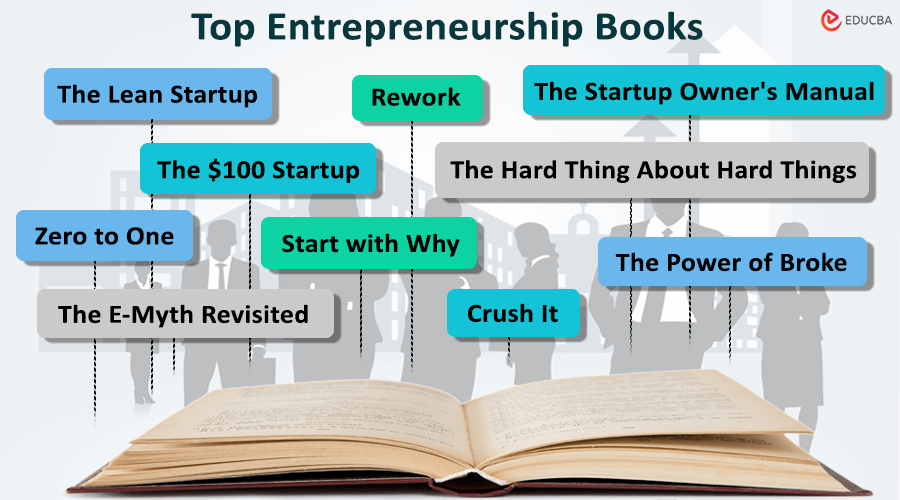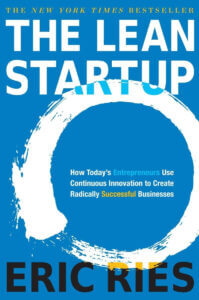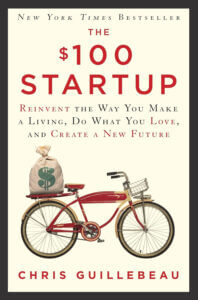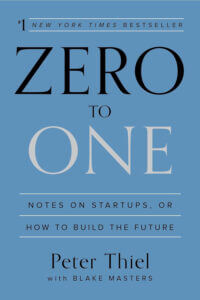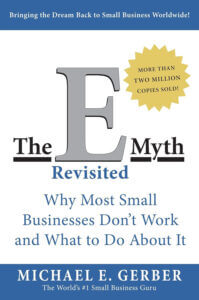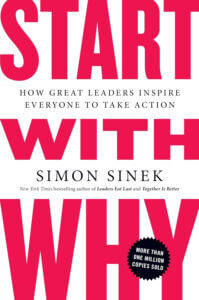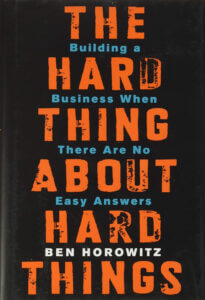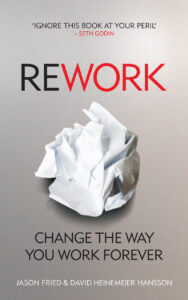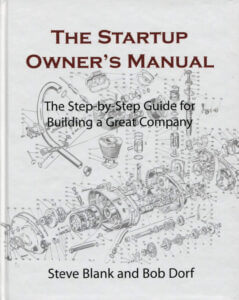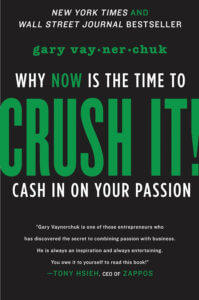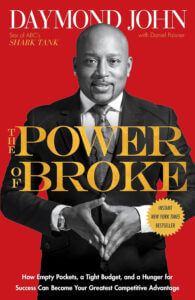Introduction to Entrepreneurship Books
Are you looking for books to learn how to build and run successful businesses? This list of entrepreneurship books will challenge conventional wisdom and provide fresh perspectives on a range of topics. They talk about concepts like ideation, planning, sales, management, etc., offering practical advice.
These books are a valuable resource for aspiring entrepreneurs and business owners looking to grow and scale their businesses. Whether you are a first-time entrepreneur or a seasoned business leader, these top entrepreneurship books will help you develop the skills and mindset needed to succeed in today’s competitive business environment.
| # | Entrepreneurship Books | Author | Original Publishing Year | Ratings |
| 1 | The Lean Startup | Eric Ries | 2011 | Amazon: 4.5 Goodreads: 4.11 |
| 2 | The $100 Startup | Chris Guellebuea | 2012 | Amazon: 4.3 Goodreads: 3.88 |
| 3 | Zero to One | Peter Thiel & Blake Masters | 2014 | Amazon: 4.5 Goodreads: 4.17 |
| 4 | The E-Myth Revisited | Michael Gerber | 1995 | Amazon: 4.5 Goodreads: 4.06 |
| 5 | Start with Why | Simon Sinek | 2009 | Amazon: 4.6 Goodreads: 4.10 |
| 6 | The Hard Thing About Hard Things | Ben Horowitz | 2014 | Amazon: 4.6 Goodreads: 4.22 |
| 7 | Rework | Jason Fried & David Heinemeier Hansson | 2010 | Amazon: 4.5 Goodreads: 3.97 |
| 8 | The Startup Owner’s Manual | Steve Blank & Bob Dorf | 2012 | Amazon: 4.5 Goodreads: 4.10 |
| 9 | Crush It | Gary Vaynerchuck | 2009 | Amazon: 4.4 Goodreads: 3.87 |
| 10 | The Power of Broke | Daymond John & Daniel Paisner | 2016 | Amazon: 4.6 Goodreads: 3.89 |
Read the comprehensive review of the above-mentioned entrepreneurship books to find the one you want.
Book #1: The Lean Startup: How Today’s Entrepreneurs Use Continuous Innovation to Create Radically Successful Businesses
Author: Eric Ries
Review:
This book has become a modern classic and is a must-read for anyone interested in entrepreneurship. It focuses on building a startup using lean principles. The author presents a methodology for building successful startups by testing and validating ideas quickly. He also emphasizes the importance of customer feedback and continuous experimentation.
Key Points:
- Lean Startup emphasizes creating a Minimum Viable Product (MVP) and rapidly iterating based on customer feedback.
- It teaches us to use the Build-Measure-Learn feedback loop to iterate on the product until it meets customers’ needs.
- The book mentions Five Whys, a problem-solving technique that helps us get to the root cause of a problem.
- It puts forth concepts like rapid experimentation and testing, pivoting, innovation accounting, etc.
- The author has added real-life examples of successful startups that used the Lean Startup methodology, such as Dropbox and Airbnb.
Book #2: The $100 Startup: Reinvent the Way You Make a Living, Do What You Love, and Create a New Future
Author: Chris Guellebuea
Review:
This book provides a fresh perspective, focusing on solo entrepreneurs converting their passions into profitable micro-businesses. The book features profiles of accidental entrepreneurs who found success by monetizing their passions. Guillebeau’s straightforward writing style, complemented by useful tables and checklists, guides readers through the process of turning small ideas into income.
Key Points:
- Guillebeau advises solo entrepreneurs to follow three steps: convergence, skill transformation, and revenue generation.
- The book underscores the internet’s and cloud-based services’ significance in creating global opportunities for solo entrepreneurs.
- Stories of individuals who started with minimal investment motivate readers to discover and monetize their passions for increased freedom and fulfillment.
- The book raises thought-provoking questions about merging hobbies with business and the potential impact on passion and flexibility.
Book #3: Zero to One: Notes on Startup or How to Build the Future
Author: Peter Thiel
Review:
Thiel’s approach emphasizes the importance of thinking big and creating a unique value proposition. He encourages entrepreneurs to create something new rather than copying existing products. He emphasizes that to create a monopoly in the market, one needs to offer a unique product or service. Overall, Zero to One provides a unique perspective on entrepreneurship and innovation.
Key Points:
- Thiel discusses the importance of creating a product with a strong network effect.
- The book provides insights into venture capital and the role it plays in funding startups.
- The author suggests that building a strong team and culture is crucial for success.
- He asks you to have a long-term vision for the company and take calculated risks.
Book #4: The E-Myth Revisited: Why Most Small Businesses Don’t Work and What to do About it
Author: Michael Gerber
Review:
This book challenges the myth that entrepreneurs start most small businesses. It instead argues that most businesses are run by people who are good at their work but not necessarily at running a business. Therefore, Gerber provides a framework for building a business that anyone can easily scale and manage by others.
Key Points:
- The E-Myth Revisited highlights the importance of developing systems and processes within the business.
- The book emphasizes creating a standardized way of doing things that anyone in the company can replicate to operate more efficiently.
- Gerber stresses the importance of creating a business that can run on autopilot, freeing up the owner’s time and reducing burnout.
- It provides practical advice on hiring, training, delegation, and delivering a consistent customer experience.
Book #5: Start with Why: How Great Leaders Inspire Everyone to Take Action
Author: Simon Sinek
Review:
This compelling book explores the core principles that lead to the success of companies and leaders. Sinek emphasizes defining the ‘WHY’—the purpose, cause, or belief—in driving actions and fostering loyalty. “Start with Why” is a must-read for marketers, leaders, and anyone seeking profound meaning in their endeavors.
Key Points:
- The book demonstrates that the Golden Circle, consisting of ‘WHY,’ ‘HOW,’ and ‘WHAT,’ illustrates that successful leaders inspire action by starting with the ‘WHY.’
- Contrary to the assumption that differentiation happens in ‘HOW’ and ‘WHAT,’ Sinek argues that true differentiation occurs in ‘WHY’ and ‘HOW.’
- According to the author, one must have belief in a purpose beyond oneself.
Book #6: The Hard Thing About Hard Things: Building a Business When There are No Easy Answers
Author: Ben Horowitz
Review:
In this book, the author, Ben Horowitz, offers an unfiltered guidebook for startup CEOs, providing raw insights into the challenging decisions and complexities of leadership. Horowitz’s honest narrative serves as a reality check for aspiring entrepreneurs, tackling the toughest aspects of running a startup. “The Hard Thing About Hard Things” is a no-nonsense guide that shatters myths surrounding startup success.
Key Points:
- The book emphasizes that every startup faces difficulties and struggles, challenging the common perception that success comes easily.
- Horowitz delves into the personal struggles of being a CEO, including the daunting tasks of layoffs, demotions, and critical decision-making during financial crises.
- The author advocates for unwavering belief in finding solutions and building a company.
- The book stresses the importance of training and continuous learning, debunking the notion that smart employees don’t need training.
Book #7: Rework: Change the Way You Work Forever
Author: Jason Fried and David Heinemeier Hansson
Review:
This book is a collection of essays on entrepreneurship and business. It challenges conventional wisdom and provides practical advice on product development and marketing. Rework emphasizes simplicity in business, focusing on doing fewer things and doing them better.
Key Points:
- The book challenges the notion that more work equals more productivity and encourages working smarter, not harder.
- It emphasizes hiring the right people, giving them autonomy, and trusting them to do their jobs over micromanaging employees.
- The book also highlights customer satisfaction, stating that businesses should focus on providing products/services that meet customers’ needs.
- The author suggests that instead of raising large amounts of capital, one should bootstrap and focus on profitability from the outset.
Book #8: The Startup Owner’s Manual: The Step-by-Step Guide for Building a Great Company
Author: Steve Blank and Bob Dorf
Review:
This book is a step-by-step guide to building a successful startup. It provides a comprehensive overview of the startup process and includes practical advice on everything from creating a business plan to raising capital.
Key Points:
- The book emphasizes the importance of customer development to understand customers’ needs and preferences.
- It introduces the Lean Startup methodology for rapid experimentation and iteration.
- The authors advise readers to focus on creating a scalable business model that can grow efficiently.
- They also teach how to analyze data to make informed decisions and adjust strategies.
Book #9: Crush It: Why Now is the Time to Crush in Your Passion
Author: Gary Vaynerchuck
Review:
This is a concise yet impactful book for aspiring entrepreneurs looking to leverage passion and social media for business success. The book emphasizes the importance of hard work, authenticity, and unwavering passion in building a thriving online presence. Although it lacks step-by-step instructions, the book provides a framework for developing a social media strategy and emphasizes the foundational elements of entrepreneurial success.
Key Points:
- Vaynerchuk advocates that aligning business ventures with personal interests is the driving force behind successful ventures.
- Drawing from his own journey, Vaynerchuk highlights the relentless hustle and hard work required for entrepreneurial success.
- The book emphasizes that effective storytelling and authenticity are essential for building connections.
- While promoting the importance of sticking to one’s passion, Vaynerchuk acknowledges the need for adaptability.
- Vaynerchuk’s personal anecdotes and candid advice make this book a compelling read for those seeking entrepreneurial inspiration.
Book #10: The Power of Broke: How Empty Pockets, a Tight Budget, and a Hunger for Success Can Become Your Greatest Competitive Advantage
Author: Daymond John & Daniel Paisner
Review:
“The Power of Broke” explores how individuals turn adversity into opportunity, emphasizing the potential for innovation and success in challenging circumstances. The book blends inspirational narratives with entrepreneurial wisdom, providing a varied reading experience where some stories resonate more strongly than others.
Key Points:
- The book focuses on using the constraints of being broke as a catalyst for creative problem-solving and innovation in business.
- It presents the success stories of eight entrepreneurs who overcame adversity and transformed their lack of resources into a foundation for success.
- The authors encourage readers to take a calculated leap of faith, highlighting the significance of trusting gut instincts and having belief in one’s product.
- The author stresses the importance of unwavering conviction in one’s ideas, especially when facing rejection.
- The overarching message is about turning challenges into opportunities for creative solutions and business success.
Recommended Books
We hope you found this EDUCBA guide on the top 10 entrepreneurship books helpful. Check the following recommendations for similar articles,
